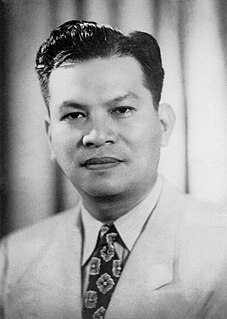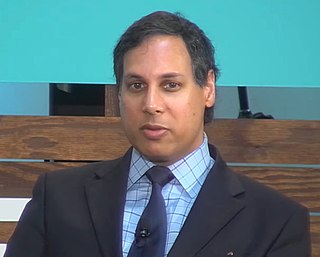A Quote by Elliott Abrams
Oil policy, policy toward the United States, policy toward Iran, Bahrain, Yemen, very unlikely, I think, to see significant change. These policies were the policies that had a wide family consensus. The question I think would be if the king becomes sick, whether you have weak Saudi leadership in the Arab world and the Middle East rather than strong Saudi leadership, but I think the fundamental policies will continue, the ones we’re familiar with under King Abdullah.
Quote Topics
Arab
Arab World
Bahrain
Becomes
Change
Consensus
Continue
East
Familiar
Family
Fundamental
Had
Iran
King
King Abdullah
Leadership
Middle
Middle East
Oil
Policies
Policy
Question
Rather
Saudi
See
Sick
Significant
Significant Change
States
Strong
Than
Think
Toward
United
United States
Unlikely
Very
Weak
Were
Whether
Wide
Will
World
Would
Would Be
Yemen
Related Quotes
The Saudis and Emiratis blame all of this on Iran. I think they’d have to grant, that as has been said, that the Houthis are an internally generated movement in Yemen and the Saudis were supposed to be dealing with the Houthis, who started out in essence along their border. So one of the things that we’re seeing is a complete failure of Saudi policy toward Yemen over the past 10 years, but the Saudis totally believe that the reason the Houthis are able to succeed militarily is the amount of money, advice, and guns they are receiving from Iran.
The problem is the policy makers don't have practitioners in the policy team. You won't make an IT policy without consulting a Narayan Murthy or Nandan Nilekani. But for energy, people think they know everything and they know what to do for it. That's how the policies are created in Delhi and that needs to change.
After the revolution of 1979, Iran embarked on a policy of sectarianism. Iran began a policy of expanding its revolution, of interfering with the affairs of its neighbors, a policy of assassinating diplomats and of attacking embassies. Iran is responsible for a number of terrorist attacks in the Kingdom, it is responsible for smuggling explosives and drugs into Saudi Arabia. And Iran is responsible for setting up sectarian militias in Iraq, Pakistan, Afghanistan and Yemen, whose objective is to destabilize those countries.
It's far from clear in general that Donald Trump is a guy who really thinks about the details of policy and is going to do the kind of heavy lifting you have to do as president to get those policies through in Congress. I think the hope is that Paul Ryan and his crew will push policies through Congress and Trump will just sign them. That's not really how policy works.
Allowing an independent and sovereign Iraq could be a nightmare for the United States. It would mean that it would be Shi'ite-dominated, at least if it's minimally democratic. It would continue to improve relations with Iran, just what the United States doesn't want to see. And beyond that, right across the border in Saudi Arabia where most of Saudi oil is, there happens to be a large Shi'ite population, probably a majority.
Foreign policy always has more force and punch when the nation speaks with one voice. To remain secure, prosperous, and free, the United States must continue to lead. That leadership requires a president and Congress working together to fashion a foreign policy with broad, bipartisan support. A foreign policy of unity is essential if the United States is to promote its values and interests effectively and help to build a safer, freer, and more prosperous world.
If you're the King of Jordan, if you're a part of the royal family in Saudi Arabia and he's made this deal with Iran which gives them $150 billion to wage a war and try to extend their empire across the Middle East, why would you want to do it now? When I stand across from King Hussein of Jordan and I say to him, "You have a friend again sir, who will stand with you to fight this fight," he'll change his mind.
I think the ethos for Gov. Romney is to use a whole variety of policies, of which tax policy is one, to try to raise the rate of growth. We've had a recovery from the financial crisis that would be well below what one might normally expect for a recovery from such a deep recession. And to counteract that we need better tax policy.



































